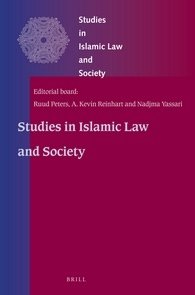Description
Islamic Law and Legal System: Studies of Saudi Arabia
Based on years of research in Saudi Arabia, this volume investigates the legal system of Saudi Arabia both for its own sake and as a case-study of an Islamic legal system. As a study of Saudi Arabia, it is the first extensive treatment in English of the constitution and Islamic court system of Saudi Arabia.
As a study of an existing legal system in continuity with past Islamic law and practice, it sheds new light on Islamic legal doctrine, practice, and institutions, correcting for past scholarly neglect of Islamic law’s application.
The book develops a framework of concepts, rooted in both Islamic and western legal theory, useful for the comparative description and analysis of Islamic legal systems and applications, past and present.
Vogel, an assistant professor at the Harvard Law School, has two goals in his massively informative “first-order study of the Islamic legal system of Saudi Arabia.
” One is to record his observations about this system in action, which he managed principally to do during a residence there in 1982-87; the other is to draw consequences from the Saudi experience about the application of Islamic law in general. Simple to state but quite an undertaking to take in:
Vogel has produced a very Germanic book (starting with its understated and soporific title) that makes few concessions to the reader. No book review, much less such this brief one, can do justice to the vast array of data and insight he makes available. Still, some highlights:
Concerning Saudi Arabia, Vogel finds a system totally at odds with what Westerners expect. His opening example gives a taste: the courts apply not only the state regulations but also the opinions of respected scholars.
Vogel argues that an “intricate relationship” between scholars and rulers (or fiqh and siyasa), ranging from competition to cooperation, forms the axis of the formal legal system.
This system, he reports, enjoys “a high degree of doctrinal consistency and justifiability,” thanks in part to its molasses-like speed at adapting. In all, these features make the Saudi legal order, quite contrary to the usual Western view, not at all an impractical one but, if anything, one that is “too flexible and pragmatic.”
Concerning Islamic law in general, Vogel finds that this flexibility makes Islamic law more useable than commonly thought in the West, and from this he reaches the truly momentous conclusion that “Islamic law could and often did enjoy far-reaching implementation in legal systems of the past.
” This is so remarkable because it stands in opposition to a large body of scholarship which maintains that Islamic law was more flouted than complied with. It also challenges the whole line of analysis based on that supposition. Vogel has made an impressive case for his views; now is the turn of his critics.

 العربية
العربية  English
English 



